-
 Bitcoin
Bitcoin $120300
1.41% -
 Ethereum
Ethereum $4296
2.75% -
 XRP
XRP $3.220
1.46% -
 Tether USDt
Tether USDt $0.9997
-0.04% -
 BNB
BNB $801.6
0.14% -
 Solana
Solana $179.9
0.22% -
 USDC
USDC $0.9998
-0.01% -
 Dogecoin
Dogecoin $0.2302
-0.24% -
 TRON
TRON $0.3405
-0.39% -
 Cardano
Cardano $0.7965
0.53% -
 Hyperliquid
Hyperliquid $44.80
2.57% -
 Chainlink
Chainlink $21.95
2.94% -
 Stellar
Stellar $0.4438
1.68% -
 Sui
Sui $3.767
-1.42% -
 Bitcoin Cash
Bitcoin Cash $584.4
3.24% -
 Hedera
Hedera $0.2554
-0.59% -
 Ethena USDe
Ethena USDe $1.001
-0.02% -
 Avalanche
Avalanche $23.57
0.00% -
 Litecoin
Litecoin $126.6
4.64% -
 Toncoin
Toncoin $3.339
0.94% -
 UNUS SED LEO
UNUS SED LEO $9.001
-0.49% -
 Shiba Inu
Shiba Inu $0.00001320
-0.92% -
 Uniswap
Uniswap $10.84
3.36% -
 Polkadot
Polkadot $3.945
-1.39% -
 Cronos
Cronos $0.1663
4.77% -
 Ethena
Ethena $0.8136
8.48% -
 Dai
Dai $0.0000
0.00% -
 Bitget Token
Bitget Token $4.391
-0.51% -
 Monero
Monero $268.0
0.80% -
 Pepe
Pepe $0.00001169
-1.57%
How to choose the contract type that suits you?
Understanding your risk tolerance, trading style, underlying asset knowledge, and the liquidity of each contract type is crucial in choosing the right contract for your investment strategy.
Feb 22, 2025 at 07:30 am
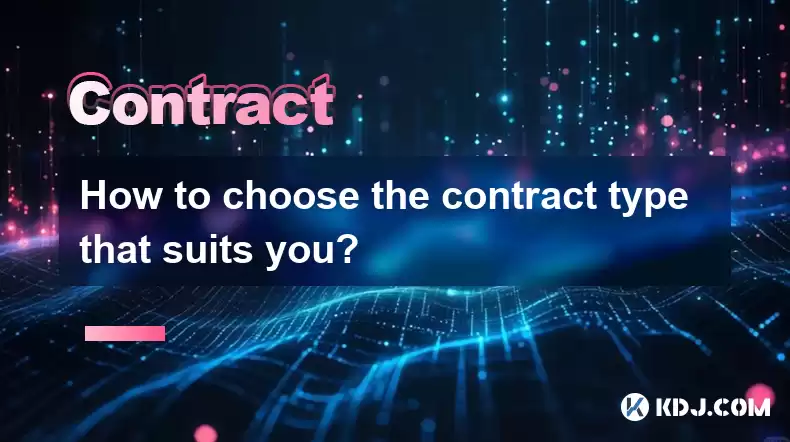
Key Points:
- Understand the different contract types available.
- Determine your risk tolerance and trading style.
- Consider the liquidity, volatility, and fees of each contract type.
- Evaluate your knowledge of the underlying asset.
- Choose a contract type that aligns with your short-term or long-term investment horizon.
Contract Types
1. Spot Contracts
- Represent the direct trading of the underlying asset at its current market price.
- Offer lower leverage than other contract types, typically 1:1 to 1:5.
- Suitable for short-term speculators or those seeking immediate delivery of the asset.
2. Futures Contracts
- Obligate the buyer or seller to purchase or sell the underlying asset at a predetermined price on a specified date.
- Offer higher leverage than spot contracts, typically 5:1 to 100:1.
- Suitable for speculators who anticipate future price movements and are willing to take on higher risk.
3. Perpetual Contracts
- Similar to futures contracts, but do not have a specified expiration date.
- Allow for both outright trading and hedging strategies.
- Offer lower fees than futures contracts and provide greater flexibility.
4. Options Contracts
- Give the holder the right (but not the obligation) to buy or sell the underlying asset at a predetermined price on a specified date.
- Offer flexibility and allow for various trading strategies, including hedging and speculation.
- Can be complex and involve higher premiums than other contract types.
5. CFDs (Contracts for Difference)
- Represent a contract between two parties to exchange the difference in the price of the underlying asset between the time of the contract and its closing date.
- Offer speculative opportunities and potential for high returns.
- Can involve substantial risk and require significant knowledge of the underlying asset.
Choosing the Right Contract Type
- Step 1: Understand Your Risk Tolerance
- Consider your financial situation and ability to withstand losses.
- Spot and futures contracts typically carry higher risk, while options and CFDs offer potential for risk management.
- Step 2: Define Your Trading Style
- Identify your investment horizon (short-term or long-term).
- Consider your knowledge of technical analysis and fundamental analysis.
- Spot and futures contracts are suitable for short-term speculators, while options and perpetual contracts provide flexibility for various trading strategies.
- Step 3: Evaluate Liquidity, Volatility, and Fees
- Choose contract types with sufficient liquidity to ensure easy entry and exit from positions.
- Consider the volatility of the underlying asset, which affects potential profits and losses.
- Compare the trading fees associated with each contract type before making a decision.
- Step 4: Know Your Underlying Asset
- Familiarize yourself with the dynamics and historical performance of the underlying asset.
- Conduct thorough research on the market conditions, news, and events that impact its price.
- Step 5: Align with Your Investment Horizon
- Choose spot contracts for immediate delivery or short-term trading.
- Futures contracts are suitable for speculating on future price movements within a specific timeframe.
- Perpetual contracts provide flexibility for both short-term speculation and long-term hedging.
- Options contracts offer flexibility and potential downside protection, but are more complex.
FAQs
- What is the best contract type for beginners?
- Spot contracts are generally recommended for beginners due to their simplicity and lower risk profile.
- What are the main differences between perpetual and futures contracts?
- Perpetual contracts have no expiration date and offer lower fees, while futures contracts have a specified settlement date and typically require higher margin.
- Which contract type is most suitable for hedging strategies?
- Options contracts and perpetual contracts offer flexibility for hedging, as they allow for various trading strategies including selling or buying options.
- What is a CFD and how does it work?
- A CFD is a type of derivative contract that represents the difference in price of an underlying asset between the contract's opening and closing dates. It is typically settled in cash rather than with physical delivery of the asset.
- How should I choose the leverage that suits me?
- Choose leverage that aligns with your risk tolerance and trading style. Higher leverage can amplify both profits and losses. Use caution when employing high leverage, as it can lead to significant financial losses.
Disclaimer:info@kdj.com
The information provided is not trading advice. kdj.com does not assume any responsibility for any investments made based on the information provided in this article. Cryptocurrencies are highly volatile and it is highly recommended that you invest with caution after thorough research!
If you believe that the content used on this website infringes your copyright, please contact us immediately (info@kdj.com) and we will delete it promptly.
- DYDX Price Stays Afloat: Navigating Neutral Momentum with Technical Indicators
- 2025-08-11 20:50:12
- Superman Takes Flight: A Deep Dive into the Comic Program and Coin Medals
- 2025-08-11 20:30:12
- JasmyCoin's Bullish Momentum: Riding the Daily Gain Wave
- 2025-08-11 21:10:12
- Shiba Inu's Comeback Trail and the Meme Coin Mania: Can $SHIB Deliver a 12,000x Return?
- 2025-08-11 18:30:11
- Proof of Trust, Transparency, and User Safety: Keeping Crypto Real
- 2025-08-11 18:50:12
- Pudgy Penguins, Bitcoin Penguins, and the $22M Meme Coin Mania: A New York Perspective
- 2025-08-11 17:10:11
Related knowledge
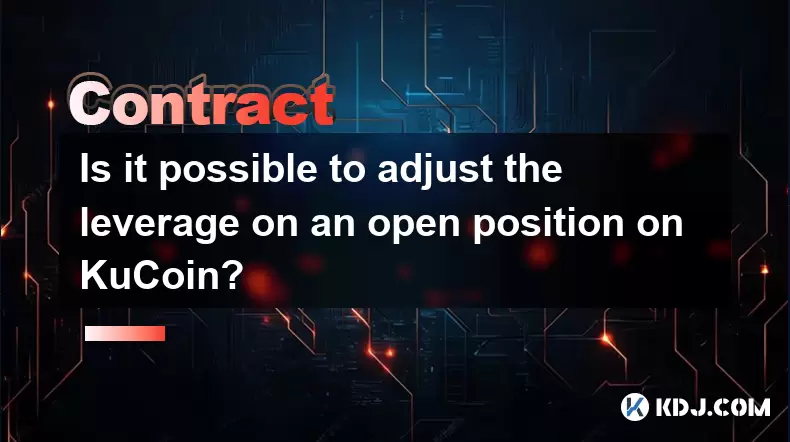
Is it possible to adjust the leverage on an open position on KuCoin?
Aug 09,2025 at 08:21pm
Understanding Leverage in KuCoin Futures TradingLeverage in KuCoin Futures allows traders to amplify their exposure to price movements by borrowing fu...
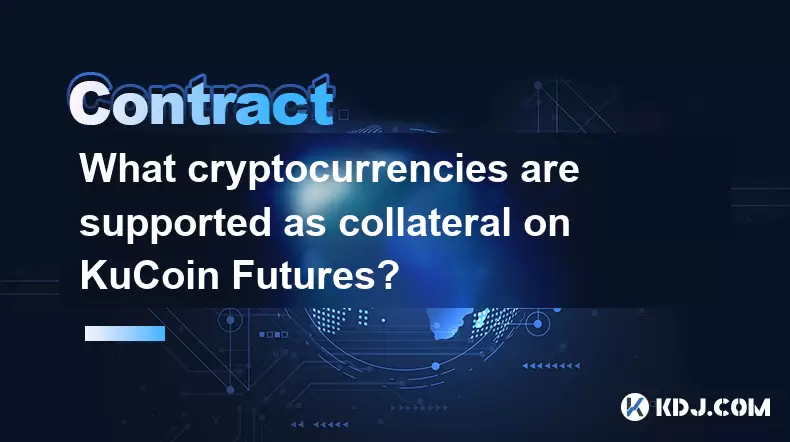
What cryptocurrencies are supported as collateral on KuCoin Futures?
Aug 11,2025 at 04:21am
Overview of KuCoin Futures and Collateral MechanismKuCoin Futures is a derivatives trading platform that allows users to trade perpetual and delivery ...
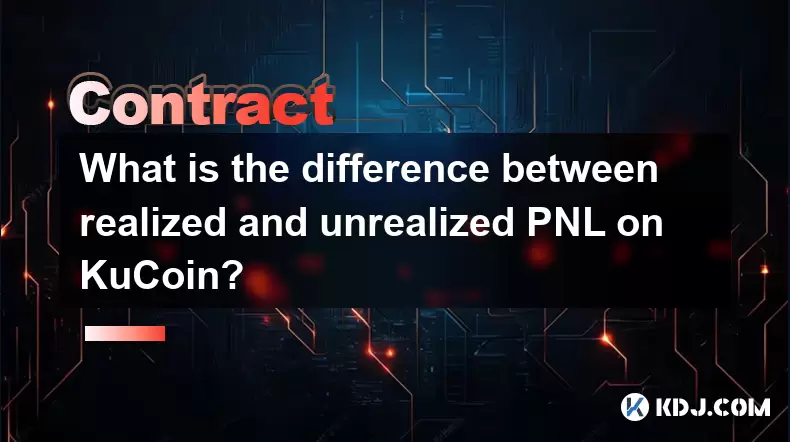
What is the difference between realized and unrealized PNL on KuCoin?
Aug 09,2025 at 01:49am
Understanding Realized and Unrealized PNL on KuCoinWhen trading on KuCoin, especially in futures and perpetual contracts, understanding the distinctio...
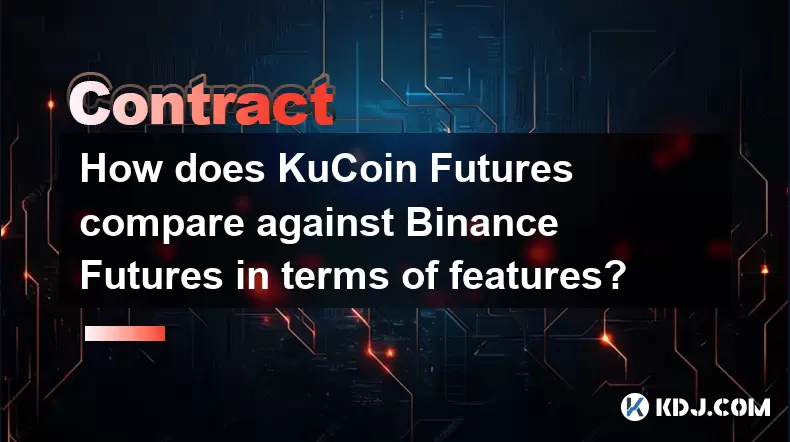
How does KuCoin Futures compare against Binance Futures in terms of features?
Aug 09,2025 at 03:22am
Trading Interface and User ExperienceThe trading interface is a critical component when comparing KuCoin Futures and Binance Futures, as it directly i...
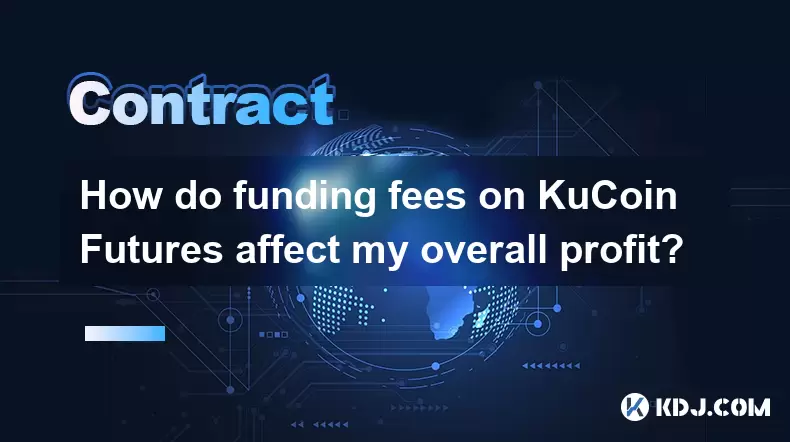
How do funding fees on KuCoin Futures affect my overall profit?
Aug 09,2025 at 08:22am
Understanding Funding Fees on KuCoin FuturesFunding fees on KuCoin Futures are periodic payments exchanged between long and short position holders to ...
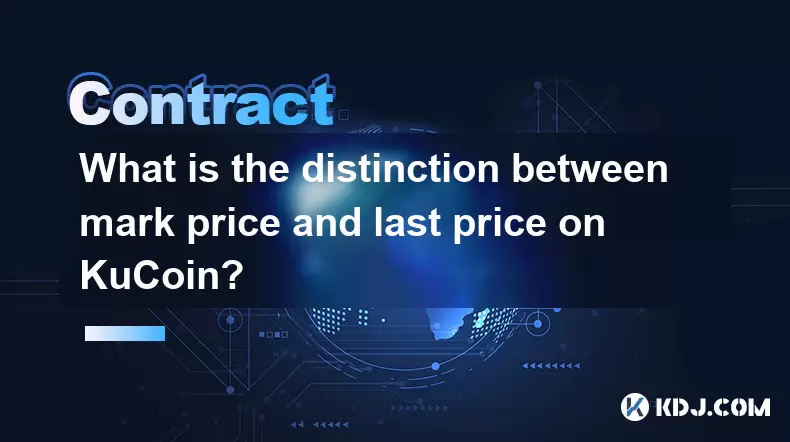
What is the distinction between mark price and last price on KuCoin?
Aug 08,2025 at 01:58pm
Understanding the Basics of Price in Cryptocurrency TradingIn cryptocurrency exchanges like KuCoin, two key price indicators frequently appear on trad...

Is it possible to adjust the leverage on an open position on KuCoin?
Aug 09,2025 at 08:21pm
Understanding Leverage in KuCoin Futures TradingLeverage in KuCoin Futures allows traders to amplify their exposure to price movements by borrowing fu...

What cryptocurrencies are supported as collateral on KuCoin Futures?
Aug 11,2025 at 04:21am
Overview of KuCoin Futures and Collateral MechanismKuCoin Futures is a derivatives trading platform that allows users to trade perpetual and delivery ...

What is the difference between realized and unrealized PNL on KuCoin?
Aug 09,2025 at 01:49am
Understanding Realized and Unrealized PNL on KuCoinWhen trading on KuCoin, especially in futures and perpetual contracts, understanding the distinctio...

How does KuCoin Futures compare against Binance Futures in terms of features?
Aug 09,2025 at 03:22am
Trading Interface and User ExperienceThe trading interface is a critical component when comparing KuCoin Futures and Binance Futures, as it directly i...

How do funding fees on KuCoin Futures affect my overall profit?
Aug 09,2025 at 08:22am
Understanding Funding Fees on KuCoin FuturesFunding fees on KuCoin Futures are periodic payments exchanged between long and short position holders to ...

What is the distinction between mark price and last price on KuCoin?
Aug 08,2025 at 01:58pm
Understanding the Basics of Price in Cryptocurrency TradingIn cryptocurrency exchanges like KuCoin, two key price indicators frequently appear on trad...
See all articles

























































































